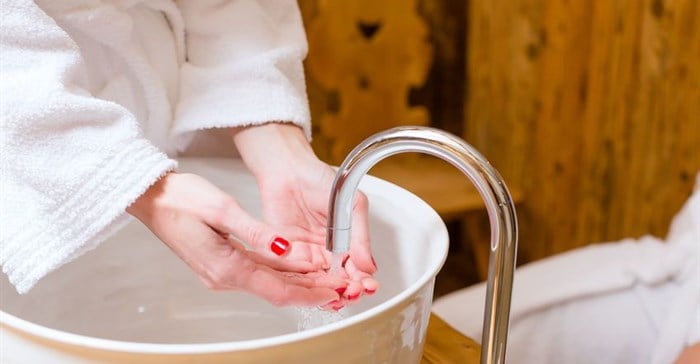One of the major findings of a recent study at Stellenbosch University (SU) shows limited finances and the comfort of guests are among the factors preventing the tourism accommodation industry from using scarce resources more sustainably, despite their best efforts.

Dr Love Idahosa
“The tourism accommodation industry is keen to adopt practices for the sustainable management of water and electricity but the high initial capital outlay and running cost of most sustainability initiatives, limited financial capacity to provide the resources (funds, manpower, and time) required to implement initiatives, and the comfort of guests stand in its way,” says Dr Love Idahosa a postdoctoral researcher at the School of Tourism and Hospitality at the University of Johannesburg. She recently obtained her doctorate in Business Management and Administration at SU.
Idahosa explored the understanding, perceptions, and preferences of key decision makers in the tourism accommodation industry regarding the management of water and electricity resources and environmental sustainability. Here she focused mainly on establishments in Cape Town and Stellenbosch. Idahosa also looked at the drivers of electricity consumption by using data on the daily energy consumption of 22 hotels across the country. This data was sourced from the Energy utility company Power-Star in Durbanville. In addition, she set out to identify the key challenges in terms of the adoption of sustainable practices in the accommodation industry.
According to Idahosa, there’s a dearth of studies on the management of energy and water demand in the industry. She says interviews with owners, managers and operators in the tourism accommodation industry revealed that they are quite aware of the sustainable management of water and electricity, the impact of their activities on the environment, and the role they need to play in this regard. “They understand the meaning and applicability of environmental sustainability to their industry.”
...overall tourism experience and the sustainability of the positive socio-economic benefits of tourism depends – in the long run – on managing its environmental footprint and improving resource efficiency.
The service nature of the industry the most debilitating challenge
“They were, however, constrained by the financial implications of such sustainable practices (environmentally sustainable practices can be quite expensive), and most especially by the concern for not negatively interfering with the comfort experience of their guests.
“The service nature of the industry, which prioritises guests’ comfort over environmental concerns, was the most debilitating challenge to implementing environmental sustainability in the establishments.”
“In this industry success depends on the satisfaction of the clients.”
Idahosa says it shouldn’t come as a surprise that the adoption of initiatives for the sustainable management of water and electricity were low and basic at best. She points out that the range of activities establishments has direct control over in terms of water consumption is limited. “It’s much trickier to regulate the water usage of guests, especially tourists from other countries.”
According to Idahosa, global studies show that tourists use a lot more electricity and water than the local population, particularly in developing countries. This usage is set to increase in the next 25 years.
Regarding electricity usage, she says her findings suggest that certain characteristics (e.g. size of establishments) and facilities offered (e.g. restaurant) drive energy consumption up in the industry. “Heating, ventilation, and air conditioning is most likely the largest direct driver of energy consumption in accommodation establishments.”
Finding alternative ways to influence consumption
Idahosa notes that establishments in Cape Town and Stellenbosch area are trying to reduce water and energy consumption by using water efficient showerheads, taps, toilets and urinals, as well as energy-efficient lighting and notices to reuse guest linen. “Water usage in kitchens, gardens, and laundry and pools can be reduced. In these areas, standard household water saving recommendations will be effective.”
Idahosa says accommodation establishments should use targeted messages to change the behaviour of guests in terms of water and electricity usage. She adds that solutions to improve the adoption of sustainable consumption of water and electricity should be focused on funding and finding alternative ways to influence consumption without negatively affecting guests’ comfort levels.
“Policymakers must create a more conducive environment by enacting new regulations and policies and/or amending previous ones so that it can be much easier for willing establishments to readily adopt environmental sustainability initiatives."
Idahosa says the Department of Tourism and the Tourism Grading Council should jointly promote sustainability incentives to encourage operators in the industry through subsidies for renewable energy and water saving devices, low-cost pricing for efficient energy (and water), adjusting the current star grading system to award extra grades for sustainability initiatives, or assisting the industry with staff training in sustainable hospitality.
“This is crucial because the tourism accommodation industry is a vital component of the overall tourism sector and overall tourism experience and the sustainability of the positive socio-economic benefits of tourism depends – in the long run – on managing its environmental footprint and improving resource efficiency.”








































